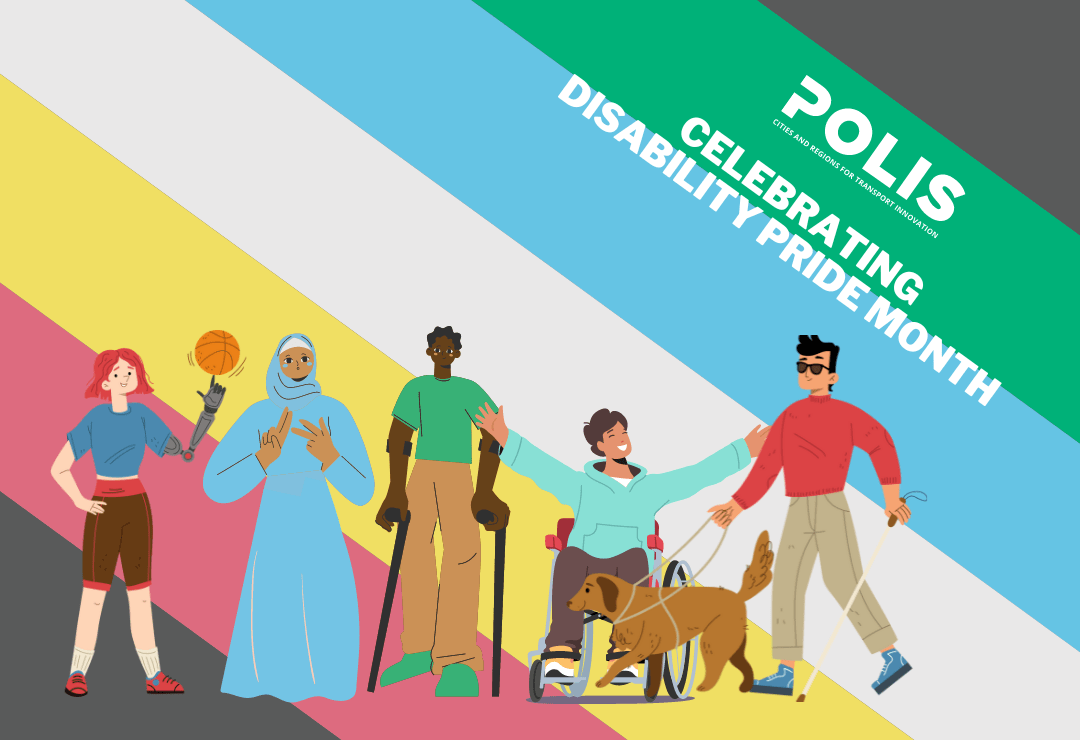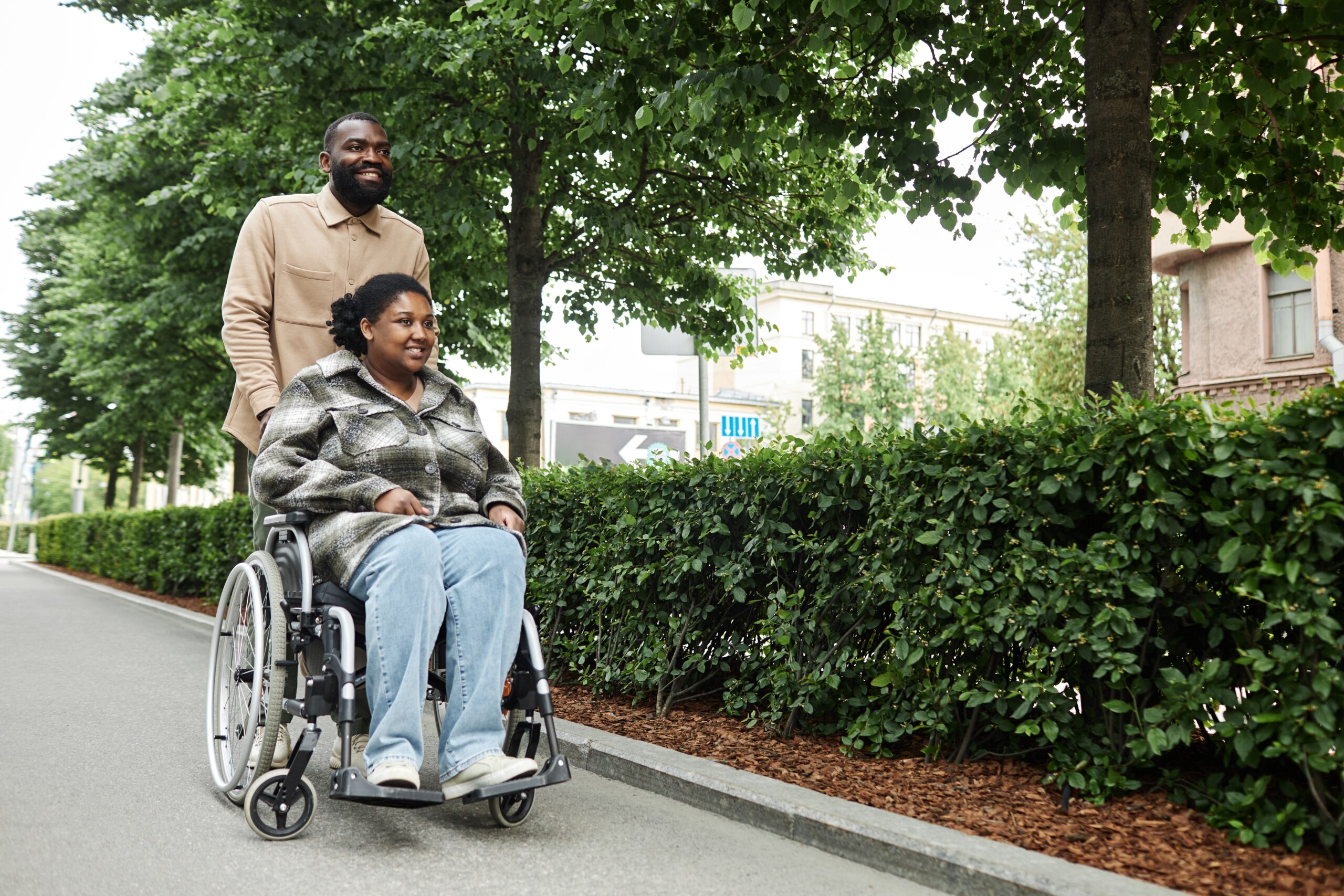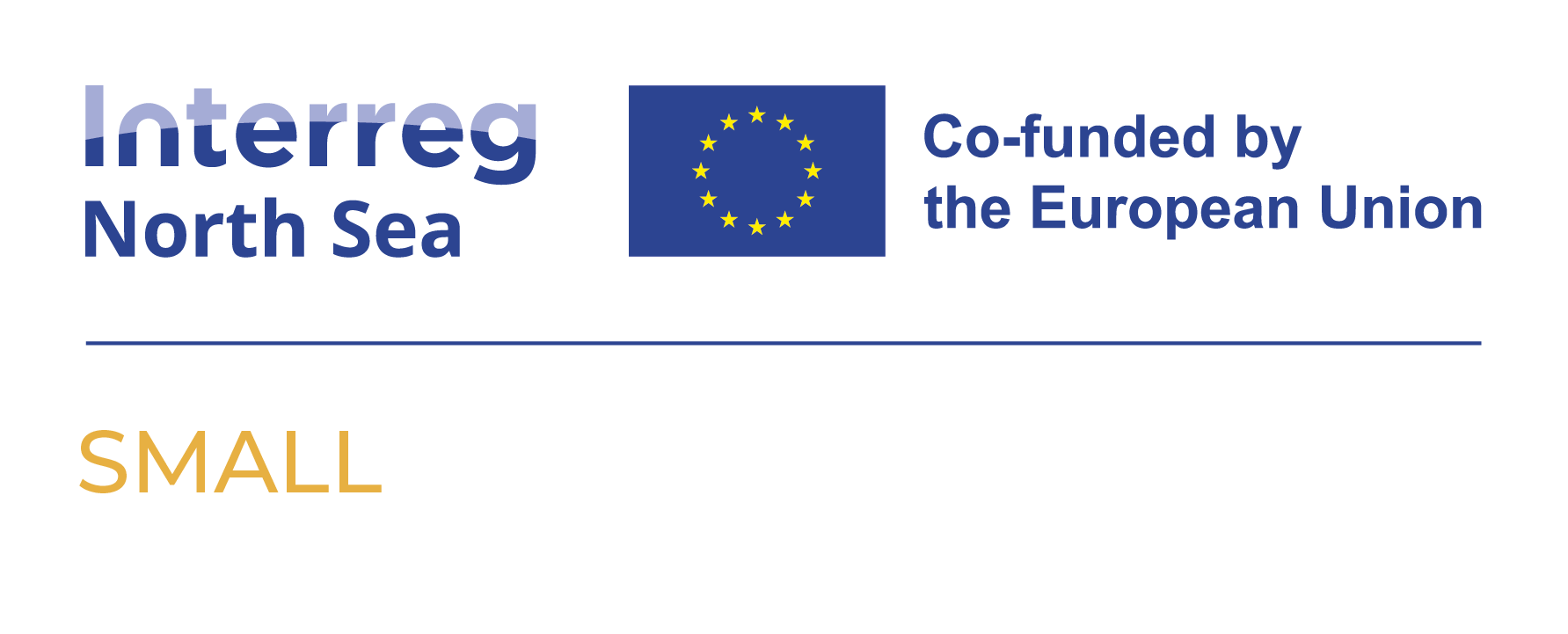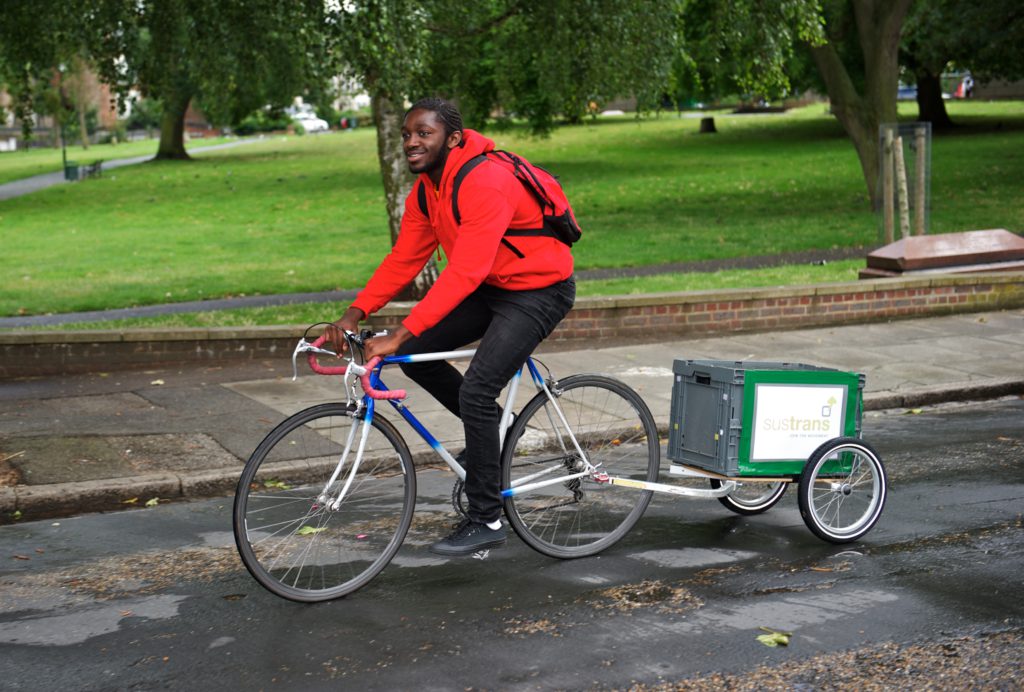Celebrating Disability Pride Month: making sustainable mobility work for everyone
Our ability (and inability) to travel plays a crucial role in how we lead our daily lives: in our journey towards employing more sustainable modes of transport, no one should be relegated to the sidelines. This Disability Pride Month, POLIS reflects on the barriers that remain for people with disabilities to travel independently and comfortably, highlighting recent progress and what lies ahead for making sustainable mobility accessible to everyone.
Freedom of movement plays a crucial role in enabling (and disabling) one’s independence and ability to access fundamental human rights. Indeed, the availability of different travelling modes has an impact on the ways in which people can make use of basic services such as education, employment, and healthcare, or more simply, how people can lead their daily lives in a free and comfortable manner.
And yet, despite recent progress being made towards fostering a more inclusive mobility, many barriers still remain for those with impairments and disabilities: from streets being unsafe to navigate on foot or by wheel, to transport modes designed in ways that are inaccessible to the multifaceted needs of people with disabilities, a substantial proportion of the population remains left behind in our journey towards sustainable mobility.
July is Disability Pride Month, a worldwide observance to celebrate and raise awareness of the vast and unique experiences of people with disabilities and promote the positive pride felt by them. However, it is also a month to highlight the struggles the disability community still face, particularly when it comes to transport, and what actions still need to be taken to ensure we foster a mobility that excludes no one.
Setting the record straight on disability
One of the reasons why mobility options and related infrastructure often remain inaccessible to people with disabilities is due to their needs being marginalised, seeing them as removed from the ‘majority’ of users. Yet, an estimated 87 million Europeans are holding some form of disability (equating to 1 in 4 adults) and are routinely unable to access transport with the same freedom and independence as non-disabled people, placing them well within the category of primary transport users.
Moreover, there are also several misunderstandings surrounding the disability community and all the identities that lie within, making it more complex for city planners and mobility providers to truly account for such users’ needs. So how do we understand ‘disability’? And how do we make sustainable mobility options such as active travel accessible to people with disabilities? We sought to answer these questions by asking directly the experts.
In the inaugural edition of Cities in motion, POLIS associate member Sustrans described ‘disability’ as “a broad term covering a wide spectrum of physical, sensory, or cognitive conditions (sometimes apparent, sometimes more concealed) experienced in multiple ways. These conditions shape how individuals — and caregivers — navigate urban mobility services.”
Indeed, due to their varied nature, some of these needs may even conflict with another, requiring careful attention to the voices of users. Our Just Transition Webinar series explored this further during the Active Travel & Health session, which aimed to understand how we can foster active travel for disabled people*.
* Please note: for the following sections we will follow Transport for All and Sustrans' choice of 'disabled people' as term, which is rooted in the social model of disability that understands the problems as existing in the environment, rather than the person.
One of the key takeaways from the session was that, while accessibility concerns are often discussed, the voices of those most affected by urban mobility design are often not brought to the fore.
Transport for All, the only disabled-led group striving to increase access to all modes of transport and street space across the UK, explained how they sought to rectify the issue through their ‘Pave the Way’ research, which examined how low-traffic neighbourhoods (LTNs) and the barriers to Active Travel have impacted disabled people. Some of the main insights included how environmental policies, often unintentionally, created more barriers for disabled people, and the lack of consultation with users in implementing such changes, which they were not warned about with enough care.
Mapping accessibility: Sustrans takes the leap
Calculating accessibility for active travel options can seem a complex task. However, there has been a range of attempts to capture successes and shortfalls. Just this month, Sustrans, who has put much focus on disability exclusion and has been providing comprehensive advice to policymakers in this regard, launched the Walking and Cycling Index Data Tool. Through a double set of interactive data analysis and comparison dashboards, the tool gives a level of access and insight into active travel data that has never been available before. This tool aims to help policymakers understand trends, compare places and, importantly, give key insights into what underrepresented groups across the UK, including disabled people, think about active travel.
This research was preceded by the Disabled Citizens Inquiry, presented by Sustrans and Transport for All during the Just Transition webinar. The aim was to give disabled people a voice in making walking and wheeling more inclusive to their needs. 43 users were able to develop concrete solutions in workshops, which were then tested through an independent representative survey of 1,183 disabled people across the UK.
“We work in neighbourhoods across the UK to improve design and construction; we also work with and through communities, and we use our voice to campaign for change at the political level,” Tim Burns, Sustrans.
Achieving accessibility through co-creation: the SMALL project’s mission
Across Europe, more EU-funded projects are seeking to shape the future of sustainable urban mobility to be inclusive of people with disabilities. However, when it comes to accessible shared mobility, there is an evident gap: in the European North Sea region for example, a vast majority of shared mobility solutions are currently only being used by young, physically able and independent urban adults. This excludes one-third of the population in the region who are people with reduced mobility — a category that includes families and children, the elderly, and people with physical disabilities — who hold specific mobility needs, yet are not taken into consideration in the design of sustainable active travel solutions. Indeed, when envisioning the travel needs of people with reduced mobility, shared mobility options are not much thought of at all, specifically for those with physical disabilities.
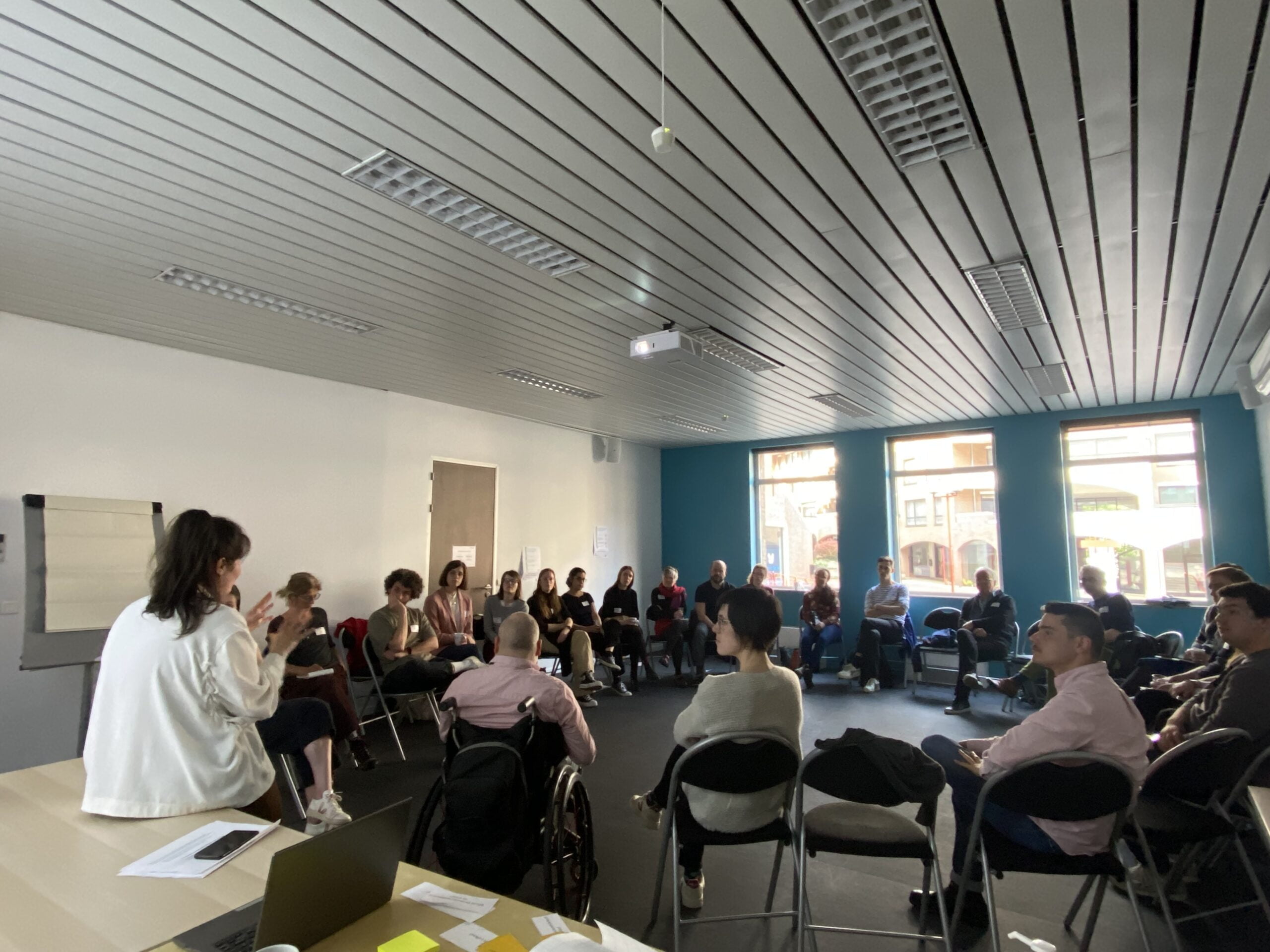
SMALL experts and partners at the Expert Roundtable's fishbowl discussion session.
In comes SMALL, an Interreg North-Sea project we launched in January 2023. Short for Shared multimodal Mobility Accessible to ALL, SMALL came to life with one specific purpose: to support the development and implementation of shared mobility solutions that are readily accessible to everyone in the North Sea region.
Co-creation lies at the heart of the project: by taking a people-focused approach and ensuring the voices of people with disabilities are heard throughout the project’s course, SMALL aims to create solutions that truly work for those it is meant to serve. How? Through activities such as the hosting of Expert Roundtables to hear directly from people with reduced mobility themselves and from external key inclusive mobility experts, as well as the organisation of various co-creation and engagement activities with each pilots’ end-users.
“In the spirit of Disability Pride Month, the SMALL project strives to build a world where transportation knows no barriers. We celebrate diversity and work towards co-creating an accessible, empowering, and inclusive shared mobility ecosystem for all. Let's roll together towards a future where every individual can move freely, with pride, and without limitations." – Esen Köse, SMALL Coordinator, Mpact.
There is much work to be done for people with disabilities to truly be included in the race for more sustainable urban mobility. For this to happen, collaboration is key: and together with our members, POLIS remains committed to making sure inclusive mobility remains at the forefront of the mobility agenda.
